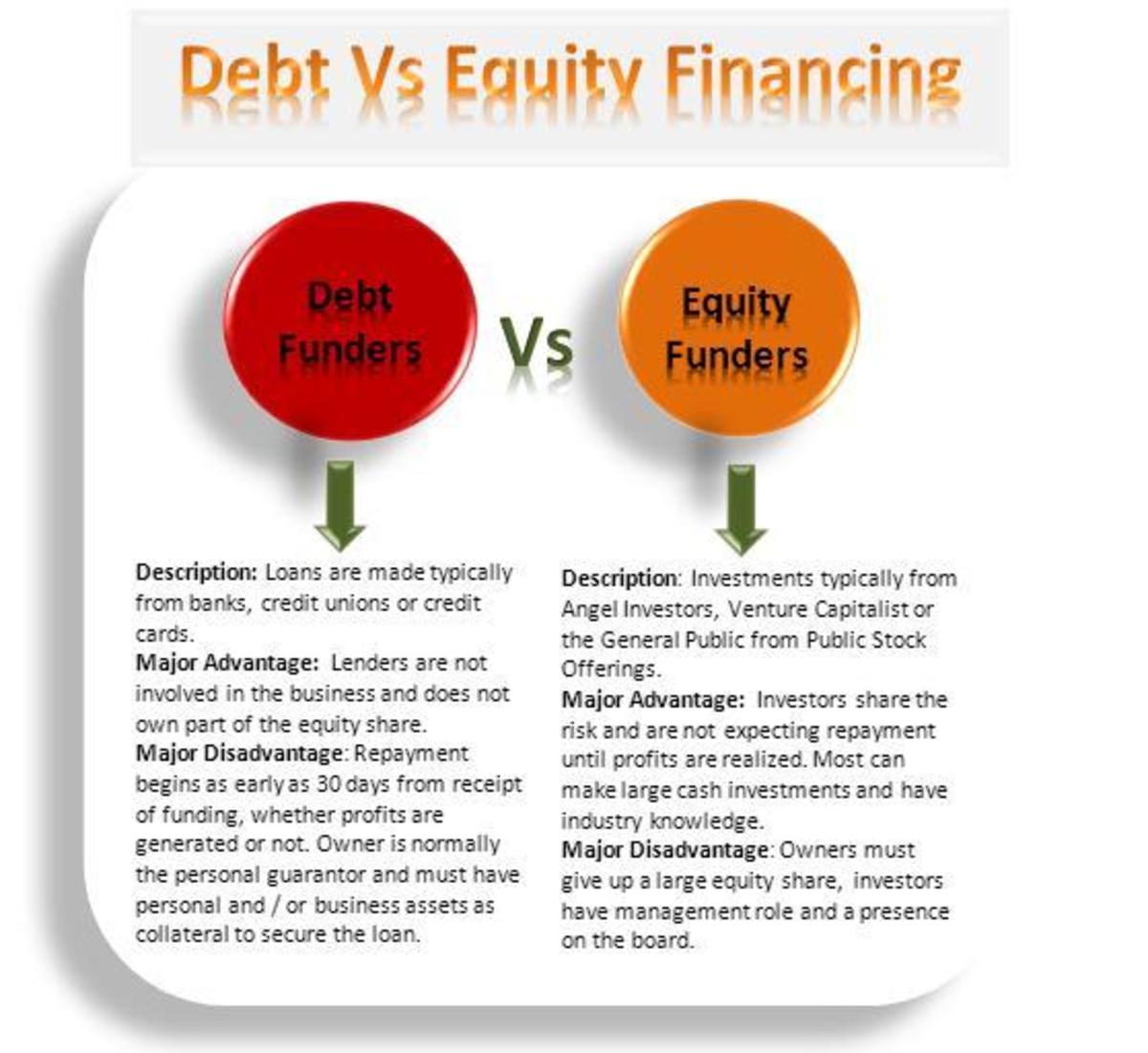Finance Careers - Find the Highest Paying Jobs in Finance
The financial industry offers challenging, diverse and lucrative career opportunities for self-motivated, diligent candidates. Change is constant in the field of finance careers, requiring continued education in technology, government regulations and the globalization of the marketplace.
In this article you will find outlines of available finance careers, including potential paths for advancement, general salary information and educational requirements. If you do not have a 4-year degree under your belt just yet, there is a section towards the end, which covers finance careers with flexible educational requirements.
Evaluate your career options, choose a direction and know exactly what you want to accomplish. Employers select highly ambitious and efficient people to join the ranks and those who are most successful in the industry are focused on their professional goals from the start. Research the career possibilities and the steps involved in reaching your desired level of accomplishment and continually prepare through formal education and personal study.
Geographical Considerations for Finance Careers
If you are interested in accounting, insurance underwriting, or becoming a personal financial advisor, you will likely find opportunities nationwide. Various careers in finance such as stock / commodities brokers, securities analysts and portfolio or mutual fund managers will require you to live in major metropolitan areas such as New York City, Chicago, London or Tokyo. It is important to consider this when planning, goal setting and designing your course of study.

International Finance Career
Resources for Securities and Commodities Careers
- Center for Futures Education, Inc.
Securities, Commodities, Futures broker and trading education and marketing tools. Workshops, home study courses and materials. - Chicago Board of Trade
The Chicago Board of Trade is a global commodity futures exchange trading treasury bonds, corn, soybean, wheat, mini-sized Dow, gold, silver and more. Information on tours and educational programs. - CME - Chicago Mercantile Exchange
The largest and most diverse financial exchange, is committed to serving customers and shareholders, and helping them achieve their business and investment objectives. Offering a wide variety of career information and training programs. - SIFMA
Securities Industry and Financial Markets Association. Information for employment in the securities industry.

Finance Careers
Financial Services Brokers
Also called stockbrokers, securities sales representatives or account executives, they work to represent individuals or organizations that wish to buy and sell stocks, bonds and other financial products. Financial services brokers analyze companies offering stocks and advise clients on investment strategies. The most important aspect of this position is developing a client base with which to work. A 4-year college degree is desired for this position, but not always required. Brokers must pass the Series 7 Examinations in order to gain licensure and to register with NASD. Brokers work in brokerage firms across the country, with the largest opportunities being in New York City and other major financial centers worldwide including Chicago, London, and Tokyo.
Depending on skill, brokers may advance quickly, and may become branch managers, or partners in their own firm. This is a commission-based career, so salaries can be vastly different. Average salaries are between $50,000 and $75,000 annually, not including bonuses.
Commodities Broker
A commodities broker, also known as a futures commission merchant, carries out sales and purchases of commodities for traders and customers. Brokers work either in a brokerage house or on the floor of a commodities exchange. They work on a commission basis for conducting and completing trades.
There are no formal educational requirements for this career, although a bachelor's degree in finance or a related field is always preferred. Licensing is required. A broker must pass the Series 3 Examinations in order to satisfy legal registration requirements of federal, state and industry agencies. A broker should possess a combination of research and money management skills, along with a stable and assertive personality that can withstand working in a volatile environment.
A successful broker can advance from simply executing trades to become a full service broker or a commodity-trading advisor. The average salary of a commodities broker is approximately $70,000 - $90,000 annually. These numbers do not include bonuses, which can substantially change a brokers income level.
Financial Managers
Financial managers design and direct investment and cash management strategies, and oversee financial reporting for their organization. Financial managers can be employed in different positions, such as controller, finance officer, credit or cash manager, and international banking manager or risk manager. They may be influential in mergers and global expansion or other related finance projects.
The minimum educational requirement is a bachelor’s degree in finance, business administration, economics, or accounting. Many employers seek candidates with a master’s degree in one of these specialties. The exception in these requirements is in banking. Banks often fill branch management positions by promoting employees, such as loan officers, from with in their existing organization.
There are also professional certifications that can be obtained, which is helpful for advancement in this highly competitive field. The median salary for a financial manager is $92,000 annually, with the highest paid managers earning close to $150,000. Salaries fluctuate geographically and across industries. Financial managers in the securities and commodities field are the highest paid, while those employed by local governments earn the least.
Financial Analysts
Financial Analysts evaluate and study financial information, and provide investment recommendations based on their research. Additionally, they analyze a company’s financial statements, sales and tax rates to project earnings and determine value. Financial Analysts are also known as investment analysts, security analysts or ratings analysts. Banks, mutual funds, insurance companies and securities firms primarily employ financial analysts.
A bachelor's degree is required and a master's degree or professional certification (such as CFA or Chartered Financial Analyst) is advantageous to career growth. Licensing may be required, depending on the position and specialty. Growth opportunities for experienced financial analysts include handling greater responsibilities by managing more important products and advancing to the level of portfolio or fund manager.
The median salary for a financial analyst is approximately $67,000 with the highest paid analysts earning more than $130,000 annually.

Resources for Additional Information About Finance Careers
- National Association of State Budget Officers
Budget analysis career information at the state government level. - SOA - Society Of Actuaries
The Society of Actuaries sponsors training programs and certification for full professional status in the fields of insurance finance and investing. - Be An Actuary
Provides an overview of the actuarial profession and is used to promote the actuarial science career. Exam information, academic programs, and job hunting tips are included. The web site is sponsored by the Casualty Actuarial Society, and SOA.

Additional Finance Career Resources
- American Institute of Certified Public Accountants
Information about examinations, careers and Certified Public Accountant standards. - IMA - Institute of Management Accountants
Management accounting career information and CMA designation requirements. - FMA
The Financial Management Association International; certification and career information. - CFA Institute Home
Formerly the Association for Investment Management and Research (AIMR) - offers the Chartered Financial Analyst (CFA) designation and offers seminars and publications on investment-related topics of interest to investment professionals. - Treasury Management, Cash Management and Corporate Finance: Association for Financial Professionals
The Association for Financial Professionals (AFP) serves financial professionals with products, education and training for treasury management, cash management and corporate finance. - National Association of State Budget Officers
Comprehensive career information for Budget Analysis on the state government level.
CPA Careers
Personal Financial Advisors
These advisors work with individuals to assess a financial situation, make investment recommendations, and formulate a plan for long and short-term interests. They can assist with estate and retirement planning, provide tax advice, and develop strategies for saving for college. Some advisors also sell life insurance. A large portion of a personal financial advisor’s time is spent on marketing and sales tasks to establish a client base, and therefore increasing their income.
Strong communication skills are needed to effectively assist clients in comprehending financial markets. A bachelor’s degree is strongly preferred, but not always a necessity. Licensing is required to advise on securities investments and insurance sales. A professional designation, such as Certified Financial Planner is also helpful for advancement. Advancement opportunities include working with a larger client base or moving to a management role. The median income is $67,000, with the highest paid financial advisors earning over $145,000 annually. These salary estimates do not include self-employed personal financial advisors.
Loan Officer
The majority of loan officers work for commercial banks and savings institutions. A loan officer guides a client through the entire process of applying for a loan, from the initial information gathering to setting up a repayment schedule. Loan officers sometimes function as salespeople, and usually specialize in business, commercial, mortgage or consumer loans. A bachelor’s degree in finance or a related field of study is usually required and additional training or experience in sales and banking is advantageous. Yearly earnings will fluctuate with the number of loans generated.
Insurance Underwriter
An insurance underwriter considers a wide variety of factors to determine the risks involved in an insurance application, and whether that risk is acceptable or will likely result in a loss. A bachelor’s degree is preferred (with concentrations in finance or law) for these types of positions and continuing education credits are necessary for advancement. Candidates must possess strong communication skills and be proficient at using related technologies. Opportunities for advancement include senior underwriter and management positions. The average salary is $52,000, with the highest paid underwriters receiving annual salaries over $92,000.
Budget Analyst
Budget analysts estimate the financial needs of their company or organization and analyze and develop a budget accordingly. They evaluate ways to increase profits by efficiently distributing available funds. They may be involved in the implementation of the budget, the analysis of related policies and exploration of alternative funding.
A bachelor’s degree is the minimum requirement for this position, but many employers now prefer a master’s degree. Close to half of budget analysts employed in the U.S. work for the government on a federal, state or local level. Many entry-level employees will have extensive training, both on the job and in a classroom environment. Opportunities for advancement can be expected within 1-2 years to an intermediate level, and with additional experience, to the senior level.
High ethical standards are a requirement for these positions due to the confidentiality of financial information. Budget analysts often work with significant time restraints.
The median salary for budget analysts is $62,000, with the highest paid positions earning $93,000 or more per year.
Actuaries
Actuaries assess risks and create policies to minimize the financial impact of such risks to the company. Pension actuaries evaluate and report on the financial soundness of pension plans. Actuaries are employed primarily, but not exclusively in the insurance industry. Actuaries are also employed in the financial service industry to assist in pricing securities offerings and devising investment tools.
A bachelor’s degree in mathematics, finance or statistics or a related field is required. Additionally, actuaries need to pass a series of exams for certification.
Advancement as an actuary will depend greatly on performance record, in addition to the number of examinations passed. Possible advancement tracks include management and executive level positions, like Chief Risk Officer or Chief Financial Officer . Entry level actuaries earn between $55,000 and $70,000 per year, while high level actuaries can earn as much as $150,000 annually.
Accountants and Auditors
There are various specialties within the accounting field, including management accountants, public accountants (also known as external auditors), government auditors and accountants, tax accountants and internal auditors. General responsibilities include analyzing financial data, ensuring efficient and accurate record keeping and preparation of financial documents. Accounting plays a major role in management decision-making, by providing financial information that has been carefully analyzed and reported with recommendations.
Accountants are employed in essentially every corporation and organization in the country. Most positions require a bachelor’s degree in accounting or a closely related field of study. Licensure and certification is often necessary for advancement.
Salaries vary according to experience and specialty, with entry-level accountants earning between $35,000 to $50,000 annually. Accounting managers and directors can earn between $100,000 to $210,000 annually.

Bookkeeping, Accounting, and Auditing Clerks
Finance Careers Without a Degree
If you are interested in a finance career, but are lacking a 4-year degree, there are still many opportunities available to gain experience in this field and advance your career. A higher level of education is always desirable, but the following positions are flexible in their requirements.
Brokerage Clerk
Employed by commodities and securities firms and banks, brokerage clerks support brokers in processing transactions, taking phone calls from clients and maintaining records on client accounts. Some firms may offer on the job training or formal training classes and may assist a clerk in preparing for exams to get a series 7 license. Licensing will make an employee more valuable to the firm, and allow for advancement to a broker position. A brokerage clerk should have strong sales and customer service skills, be comfortable working under pressure and have an aptitude for numbers.
The median salary is $36,400, with the highest paid clerks making more than $57,000 per year.
Bookkeeping, Auditing and Accounting Clerks
Clerical positions are available in various types of businesses, providing ample opportunities for financial record keepers. Some of the tasks performed by bookkeeping and accounting clerks include maintaining accurate records, tracking accounts payable and receivable and profit and loss reporting. Auditing clerks verify records of transactions performed by other employees, to ensure efficiency and accuracy.
A clerk in this field must be a proficient in use of spreadsheets, although many businesses offer on the job training. A minimum educational requirement of a high school diploma is necessary and some college will always be preferred. An associate’s degree may be required in some situations. Experience in a related job or working in an office environment is helpful as well.
The average salary for an accounting clerk is approximately $30,600 with the highest paid earning $46,000 annually.
Credit Checkers, Authorizers and Clerks
These positions are generally concerned with verifying credit and authorizing and processing credit requests from consumers or small businesses. Additionally, they update credit information for credit reports. An experienced clerk with proven abilities may move into a supervisory or management position. A high school diploma is usually the basic requirement, but a familiarity with computers and good communication skills are helpful. Many organizations will provide training. The average salary is approximately $25,000 annually.
Claims Appraisers, Examiners and Adjusters
Claims adjusters and examiners authorize payments, investigate claims filed, and negotiate settlements with policyholders. Insurance companies and firms that specialize in adjusting and appraisals are the largest employers for these positions. Claims are investigated by interviewing the claimant and any witnesses, consulting official records from hospitals and law enforcement authorities or inspecting damage. Adjusters, examiners and appraisers usually have an area of specialty, such as auto, health, property or life insurance.
Many employers prefer to hire college graduates, but it is not a strict requirement. Annual earnings vary greatly in this profession. Median salaries are approximately $43,000 with the highest earning close to $70,000 annually.

Finance Careers : Job Search Links
- CareerBank.com
Find Accounting, Finance, and Banking Jobs. Search thousands of jobs, post your resume and take advantage of all the free career tools for accounting and finance professionals. - JobsintheMoney.com
Financial jobs, banking jobs, accounting jobs for finance professionals. Salary survey, career information and thousands of professional financial jobs, receive alerts and post your resume. - efinancialcareers.com
Finance jobs, investment banking jobs, careers & recruitment in finance. - Accounting Crossing
Accounting and CPA jobs, payroll, bookkeeping and financial jobs. Provided from the largest online job search board. - Salary.com
On demand talent management software connecting people,pay and performance. Salary data, reviews, cost of living calculator,articles, compensation surveys and salary wizards.








